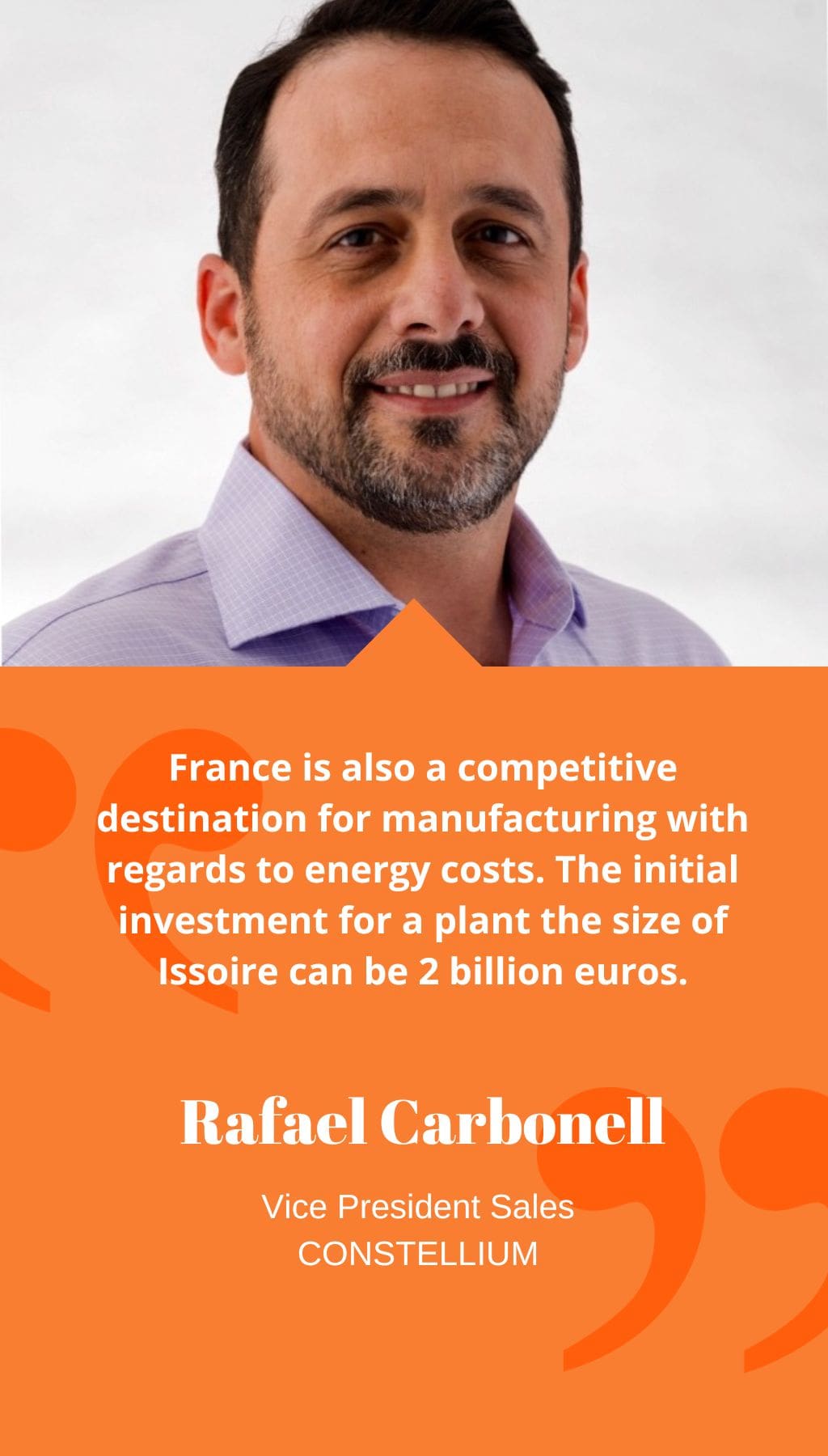
- France | 11 October 2018

Could you give an overview of Constellium’s operations in the Auvergne-Rhone-Alpes region for aerospace?
Constellium has two major facilities in the region: the Issoire plant and CTEC. The Issoire plant is a world-class rolling mill and one of only two mills of its ranking globally, with a team of 1,500 employees. The facility produces primarily for aerospace but also for other transportation markets. While the Issoire plant serves global markets, Constellium is strongly rooted in the Auvergne-Rhone-Alpes region, and many partner suppliers and customers from the clusters openly participate in their success. Close to Grenoble, Constellium also operates the Constellium Technology Centre (CTEC), which is one of the world’s leading aluminum research centres, working for all different business sectors of Constellium, including aerospace. In aerospace, Constellium is researching across different metallurgy topics and customer applications, such as the Future program in partnership with customers to develop a metallic wing with the same performance as a composite wing, but at a significantly lower cost.
How important is aluminum recycling to Constellium?
Recycling aluminum scrap is part of Constellium’s legacy, and they have built a strong supply chain so that most of the aluminum that has ever been created is in use or is recycled. Recycling makes the most sense when high purity alloys are involved, such as those with lithium, silver, and a lot of copper. Recycling from their Al-Li or customers’ scrap is fundamental for sustainability and is also economically advantageous, as the final aluminum architecture can remove 90% of the material. Ultimately, recycling improves the cost-benefit trade-off for customers, making it more competitive.
How has Constellium positioned itself for the ramp-up, and are they seeing competition from developing markets?
Constellium’s ramp-up was earlier in the decade when they saw an increased build rate in wider aircraft, so they are well-positioned for the current single-aisle production ramp-up and do not see a big growth in aluminum, just 2% per annum. For their customers, they have helped reduce time to market by introducing the free-machining, where they remove material and prepare the piece to go into their machines. While they are seeing local metallic solution supply models being discussed in emerging markets that could be competition for them, this has yet to be taken to the real sustained delivery phase. Constellium has a huge capital investment behind them to support growth and bring in Airware® Al-Li technology. Moreover, Constellium’s growth market is automotive, following the trend that sees aluminum replacing steel.
What is the strategic advantage of manufacturing in the Auvergne-Rhone-Alpes region for Constellium, and how do they stay competitive?
At Issoire, Constellium is geographically well-located to serve the global market and can get a truck to their European aerospace customers within a day. France is also a competitive destination for manufacturing with regards to energy costs. The initial investment for a plant the size of Issoire can be 2 billion euros, including a lot of capital expenditure on machines because, given the quality requirements of aerospace, they are a highly process-focused industry. The key drivers in making a rolling mill competitive are technical knowhow and maintaining equipment at a high level of readiness and performance; it is really productivity that matters, and on this front, France has many competitive industries.














